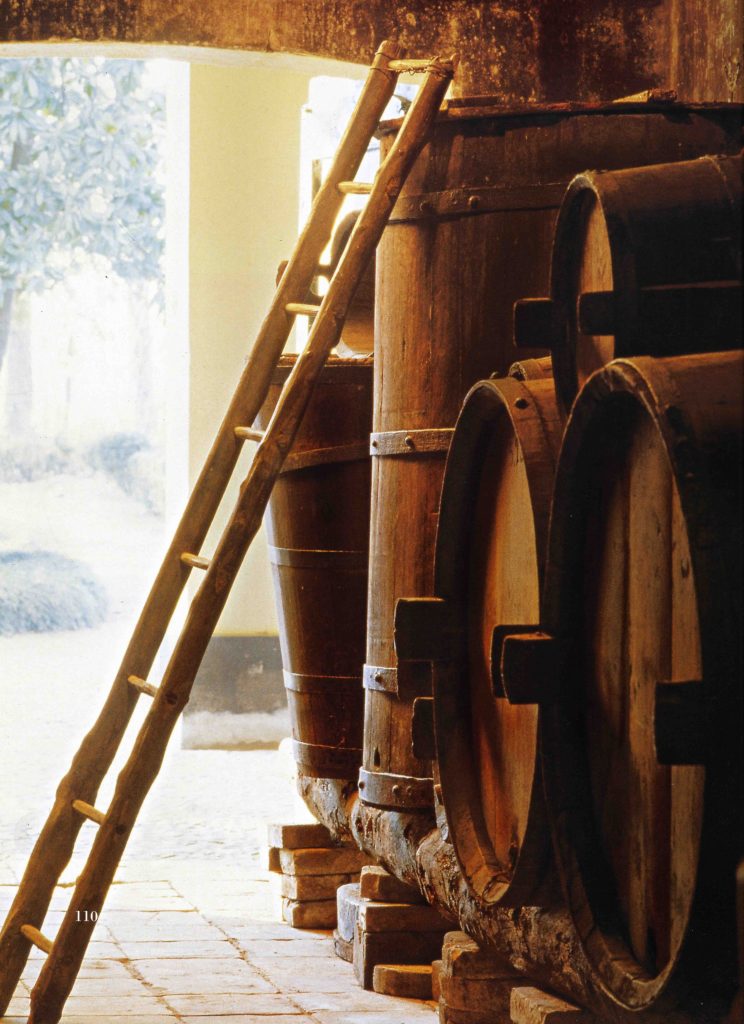
The European Federation Iter Vitis
The European Federation Iter Vitis is a non-profit association of indeterminate duration, which results from the International Association Iter Vitis established in 2007 in Sambuca di Sicilia (province of Agrigento, Sicily) with the aim of promoting and preserving the tangible and intangible European heritage of wine and vineculture through the realisation and management of the route “Iter Vitis – Les Chemins de la Vigne”, recognised as 25th European Cultural Route by the Council of Europe on May 15th, 2009 (www.coe.int/en/web/cultural-routes/the-iter-vitis-route).
The institutional and legal head officesare in Sambuca di Sicilia (Palazzo Panitteri) and the operating office could vary according to the strategies and the orientation that will be considered more appropriate for the valorisation of the Route itself.
As established in Viana do Castelo on July 1st, 2015, members of each European country, gathered in associations or in other ways allowed by the Statute, or members of several countries aggregated in a way that represents a single association interacting with the Federation, for example Iter Vitis France, Iter Vitis Italy, Iter Vitis Balcanici (Macedonia, Montenegro, Albania, Serbia, Greece, etc.), Iter Vitis Iberica (Spain and Portugal), etc. can join the network.

Mission
The landscape constitutes a factor of primary importance for the discovery of a territory and an element of great attractiveness.
The culture of vine and wine and the wine-growing landscape are a material and immaterial heritage of the community, an essential component of the history of a territory, signs that can be read and experienced: this is the assumption at the base of the European Cultural Route of the Vine and Wine “Iter Vitis – Les Chemins de la Vigne”, promoted by the European Federation Iter Vitis and certified Cultural Route of the Council of Europe in 2009.
Therefore, the project aims to offer a new travel perspective, which renews and improves the enological tourism offer by promoting the great varieties of European enological territories and landscapes, in particular through:
- the mapping and preservation of the heritage of historical and ancient vines and of the culture of vine and wine;
- the promotion of research, documentation and environmental protection activities to defend biodiversity;
- the development of aware and sustainable forms of tourism, addressed in particular to young people…
Goals and actions
The Federation aims to regulate, promote and assist the activities of the members with the precise goals of:
- Promoting in a concrete way the protection of the European rural landscape considered as a tangible and intangible asset with high added value.
- Highlighting how the wine production has always been a symbol for the rest of the world to identify the European identity and how technical knowledge – the basis of this production –have contributed over the centuries in the building of the European citizenship of regions, populations and national identities.
- Defining the typologies of viticultural landscape and public and private territories, where viticulture has left important traces in relation to the different forms of viticulture practice, and defining good manners and good practices for their conservation, promotion and maintenance of traditional techniques. The creation of a database of historic vineyards is important not only for the knowledge of their trip to Europe, but also to restore their history, both ancient and contemporary, as an essential foundation of a policy of respect for the quality of European wine heritage.
- Safeguarding viticulture biodiversity, proposing the quality of life in rural areas as a model for the future and contributing to local development by synergising the traditional use of the landscape and the tourism approach to the territory and following the logic of integration, participation and sustainability.
- Developing educational and cultural meetings to organise exchanges in view of a better knowledge of the phenomenon and of its importance in European culture.
- Improving the operational coordination of the network of cities, regions and wine routes through tools for cooperation and the exchange of knowledge and technologies and through better management and dissemination processes.
- Developing research and study activities and scientific, cultural, artistic, social, economic and tourism communicationcampaign among cities and participating countries through projects and initiatives that can promote the knowledge of wine-growing areas and a better dissemination of European cultural identity and image.
- Highlighting the importance of protecting vineyards and landscapes against globalisation, in line with the guidelines of the European Landscape Convention, UNESCO and the Fontevraud Charter for the vineyard landscape.
In order to achieve these goals, the Federation may adhere to international, national or regional bodies and organisations in harmony with its legal obligations, it may participate in or promote the creation of institutions, companies, associations or bodies of any legal nature, and perform the following activities:
- Actions aimed at young people
- Actions for the protection of the artistic dimension of the itinerary
- Actions for the promotion of sustainable tourism in involved territories
- Actions for the interaction with the cultural routes of the Council of Europe or other cultural paths for the affirmation of common values
- Actions of communication
- Actions for the training of the operators

Bodies
Emanuela Panke, President (Italy)
Natalia Turcanu, Treasurer (Moldova)
Diana Lazar, Manager (Moldova)
Board of directors
Didier Cujives (France )
Gregorio Sparacino (Italy)
Jose Arruda (Portugal)
Violeta Jankova (Northern Macedonia)
Yolla Chamoun (Lebanon)
Dijana Katica (Croatia)